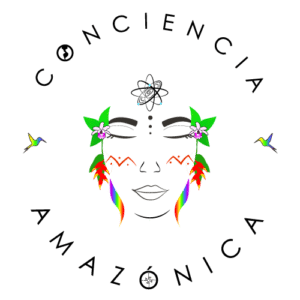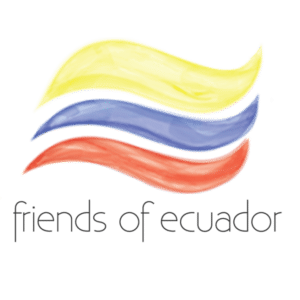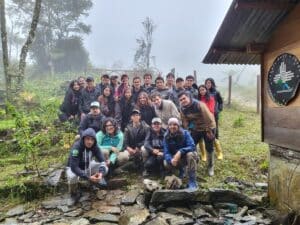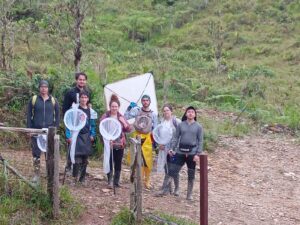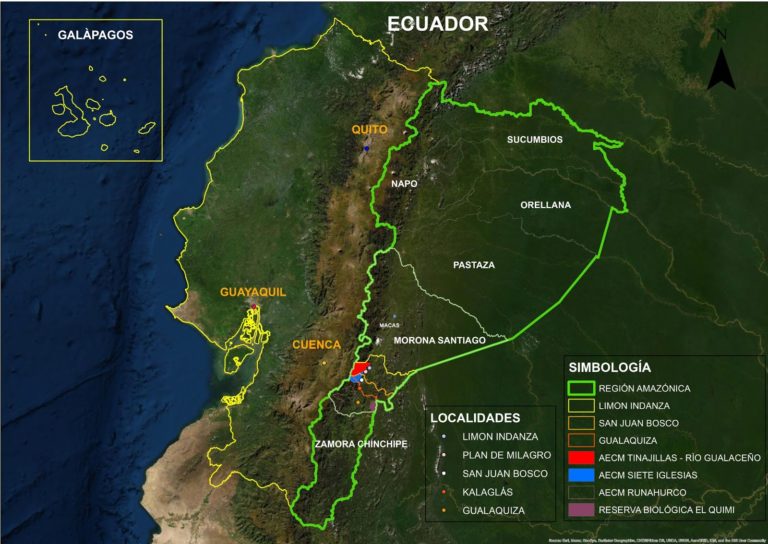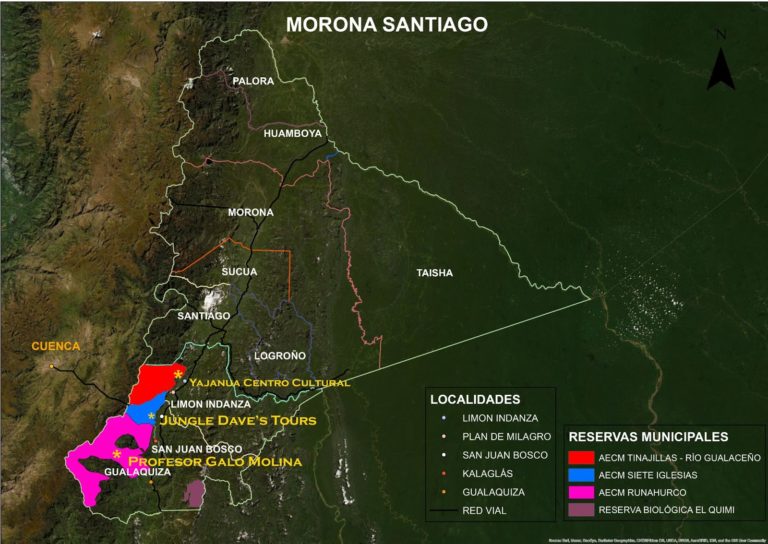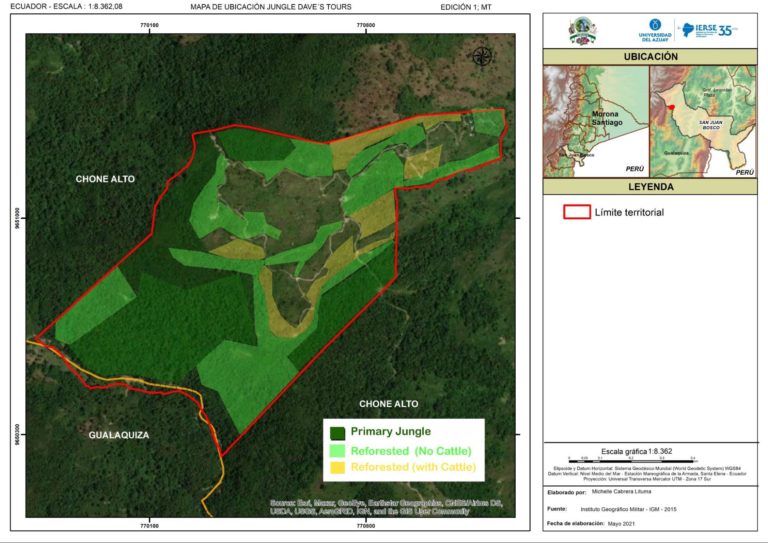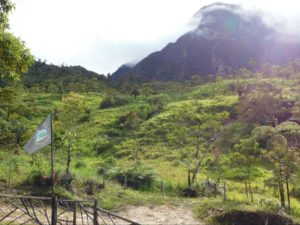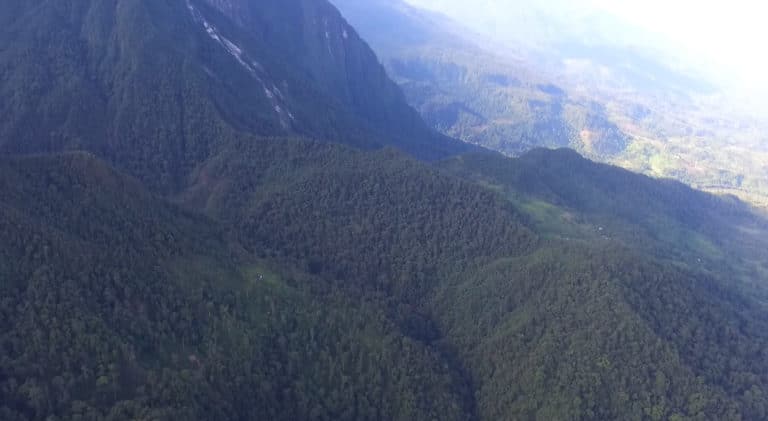Project - Conservation in Rural Amazonia, Ecuador
OVERVIEW
The foundation CONCIENCIA AMAZÓNICA, presents CONSERVA-AMAZÓNICA, a project to establish a long term, self-sustaining conservation plan focused on ecologically friendly production in the Amazonia of Ecuador. The project entails purchasing current cattle farms adjacent to Municipal Conservation Reserves to educate and implement new techniques and products using model farms as educational sites strategically located throughout the Ecuadorian Amazon. We aim to teach local, rural communities the importance of conservation, while leading by example, demonstrating ways to effectively farm using eco-friendly practices, while cultivating top quality organic produce.
Conservation
Conservation Projects in the Ecuadorian Amazon (One Off Donation)
Goals
- Establish model organic and ecologically friendly farms near Municipal Reserves.
- Establish model educational institutions providing much needed education regarding the environment and ecologically friendly agricultural techniques.
- Teach and demonstrate the importance and benefits of conservation, coupled with innovation and creative development within local communities.
- Develop entrepreneurial skills and models of employment generation activities for local communities.
Specifications
Current land management practices across the Ecuadorian Amazon are often non-sustainable, resulting in impoverished farmers who struggle for their daily bread. Applying science and eco-friendly practices elaborated in other developed countries is a struggle for locals who are set in their ways and lack the intellectual capability to apply techniques unknown to them, such as the scientific method and analysis. Living by example and showing the net result of years of dedication to solving a complex problem is often met with the desired results of an actual change, but it is a slow process, often requiring generations.
In addition, the potential exists to do it right… a self-sustaining and even profitable way to produce food and improve areas of what was primary jungle 50 to 60 years ago, while protecting vast areas of pristine, primary rainforest. We have the know-how to apply bio-intensive techniques developed in foreign countries, but applied on the equator. In remote locations, solar energy has shown to be an effective investment, greatly impacting the sustainable farming practices that result in high quality organic food, with local people employed in all aspects of society, offering financial stability for, future generations who are guaranteed to be successful because they are appropriately educated in ways that allow them to maintain and improve their system of life. In addition, land that is not apt for cattle farming (steeps and marshes), can be utilized for other products, such as fruits, fish, wood, etc. This will require future generations that not only understand the production aspect, but also all of the entrepreneurial aspects of marketing, elaborating added value products, etc.
Our goal is to provide youth with all the educational opportunities that are better than we had growing up, which will give them the ability to identify problems before they arise and look abroad for new solutions, while instilling in them the intellectual capability, confidence, and personal desire to improve the planet, knowing they are an integral piece of a grand symphony and are able to innovate solutions.

As is the case with farming techniques, educational techniques currently used in rural Ecuador have not adapted to the current needs of students. The political situation has not fostered innovations and poor strategies have been applied for decades. Now with the internet, donations, international collaborations and volunteers, we can solve this problem by supporting the honorable teachers with much needed educational resources.
Local infrastructure exists and we can sign agreements that last for years, but unless we wisely employ and teach new solutions and help integrate them into local communities, we will not reach a lasting solution. In some areas, construction of new and novel educational resource centers will propel local education to international standards in targeted locations.

To accelerate the process and have a profound positive impact in a shorter term requires economic resources, and the formation of a team of investigators to assist. Purchasing farms and applying simple logic for environmental protection (such as not tieing a cow up in the stream), has an IMMEDIATE POSITIVE ENVIRONMENTAL IMPACT. Using local workers in the process will provide a much needed economic boost, while teaching our eco-friendly farming techniques. Natural corridors for biodiversity will return with time. I personally have evidence of this from my 13 years as a farm owner. Applying “the lessons learned”, similar results are expected to be seen within 5 years.
Within this time, newly acquired farm lands will need infrastructure such as road access, adequate housing, and integrated productive solutions. With this in place, the potential will exist to exploit both tourism and food production, and systematic application of researched techniques will result in a faster rate of self sustainability. Maintaining workers, beginning agro-businesses, in the future potentially exporting goods will negate the need for extractionist activities (e.g. deforestation for wood, mines, oil) and further destruction of the rainforests which is inevitable if we continue unsustainable practices. This plan is being developed to serve as an example for farmers in several counties, and we hope to show other provinces throughout the region an example of dedication for environmental protection.
Purchasing land in Ecuador is time consuming. Purchasing my farm took 7 months from the handshake to signing the deed. With financial support, we can continue our initial projects, while we begin the processes necessary to purchase land, including land inspections and studies with “The Team”, property boundaries, deeds and legal status.
Chronology and Milestones
1. Team Formation and Preparation
We have worked as a foundation for over a year now, and have formed a diverse group of associates that have assisted with logistics for a variety of projects. All of them have demonstrated an honest, selfless desire to see our communities improve as a result of novel projects we are implementing as a foundation. Professionals include university graduates in Psychology, Environmental Engineering, Biology, and cultural promoters. Actively maintaining this team for the foreseeable future will continue our projects and expand our reach.
2. Local Education
Continuing educational projects and helping students prepare for face to face classes, including infrastructure in educational institutions, inviting guest speakers and artists, and promoting volunteering with us will help to improve education.
In addition, we are actively looking for educators and professionals from around the world to assist, from scientists to retired computer geeks, to woodworkers and carpenters to financial managers. Why?
- We require a level of education that is much broader
- People who are actively looking for volunteer work typically know what skills they have and are willing to share them.
- They desire to have a positive social impact simply for the experience of doing so.
- Local residents like to receive the information and be influenced by foreigners based on their novel worldly experiences.
Similar to Peace Corps volunteers, we are seeking volunteers for a long term commitment (at least one year), who will be provided with local housing, a stipend for meals and other living costs. When activated again, we will request Peace Corps Volunteers to assist in several communities, supported by Conciencia Amazónica as counter-parts.
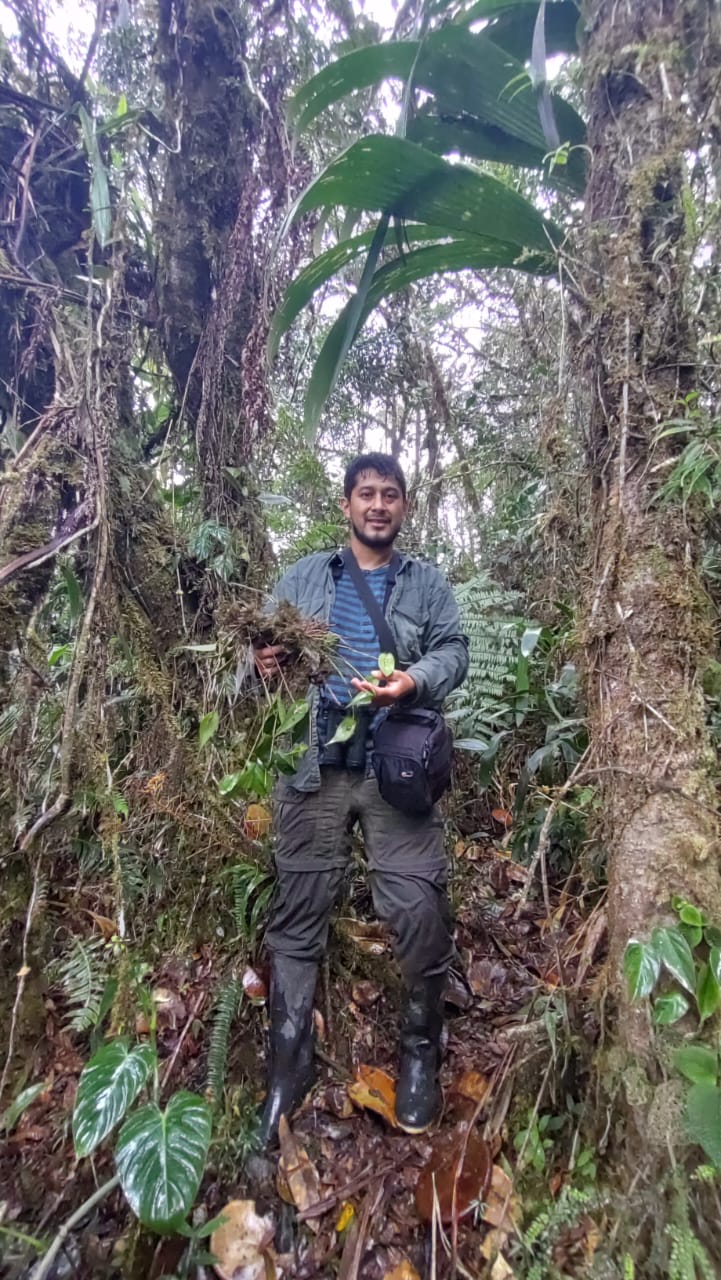


3. Land Investigation and Acquisition
As seen in the maps, several Conciencia Amazonica members have properties within different municipal reserves where they practice ecologically friendly agriculture. Opportunities currently exist to expand our private reserves and agricultural lands by purchasing adjacent farms.
In other instances, it will be necessary to send local friends and family to investigate prices of other properties strategically located to implement model projects and intelligent land management practices. It is necessary to verify legal aspects of all deeds, property boundaries, neighbor relations, etc. in order to avoid any issues in the future. Based on the results, we can send in our team to assess biodiversity currently present, productive potential, infrastructure requirements, and create a system of classification for prospective land purchases.
4. Implementation of Infrastructure, Production and Protection
With deed in hand, we can begin the labor intensive process of converting inappropriately managed farms into highly productive, eco-friendly paradises. “The Team” will assess land management practices necessary to prioritize appropriate water drainage, soil maintenance, as well as assess productive aspects.
5. Maps
FIGURE 1. Map of Ecuador. The Amazon region, the eastern side of Ecuador, is highlighted in green. Morona Santiago, our province, has several Municipal Ecological Reserves bordering the Andes Mountain Range. These areas support dozens of ecosystems, biodiversity hotspots, and are headwaters of the Amazon River.
Figure 2. Map of Morona Santiago Province. Highlighted are Municipal Ecological Reserves in Limon-Indanza, San Juan Bosco, and Gualaquiza Counties. The numbers 1 - 4 indicate locations of properties currently owned by Conciencia Amazonica’s collaborators. The possibility currently exists to expand our private reserves with the purchase of adjacent farms.
Figure 3. Map of Hollywood Farms. After 13 years of ownership, I have reestablished natural corridors of junglified areas, allowing for wildlife to have a larger habitat. Areas with no fill are current cattle pastures, also naturally reforesting, with areas available for other productive aspects, including citrus trees, coffee, and woodlands.
Figure 4. Hollywood Farms in action. Rotational grazing with solar powered electric fencing, streams protected from contamination, naturally reforested, yet just as productive as the previous owner, using 66% of the pasture.
The value of each head of cattle is also doubled or tripled by the value added product nature of Hollywood Farms, namely, organic beef humanely raised and sacrificed, custom butchering, and “from farm to plate” sales in Cuenca. Hollywood Farms also produces chickens, turkeys, and lamb commercially, while sustaining constant vegetable and citrus production.
Figure 5. The SouthWest side of the farm, where Jungle Dave’s Tours offers eco-tourism, exploring primary jungle adjacent to Cerro Pan de Azucar. Complete with Bird Watching, Waterfalls, camping sites, and access to the trail to summit.
